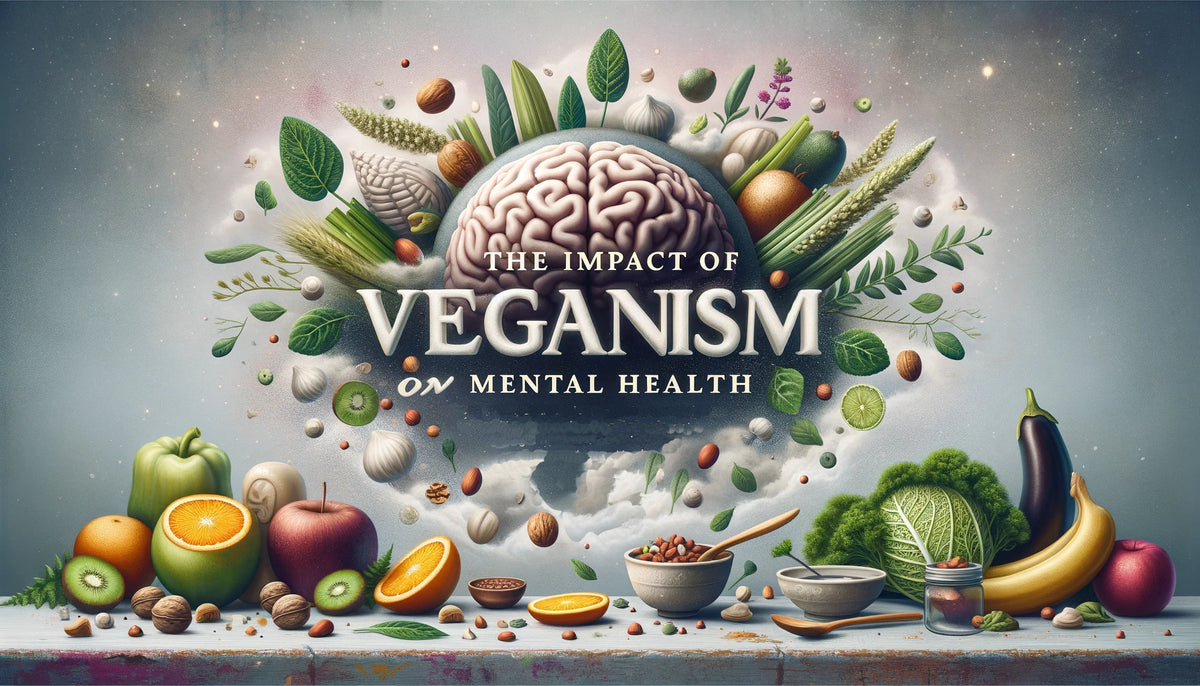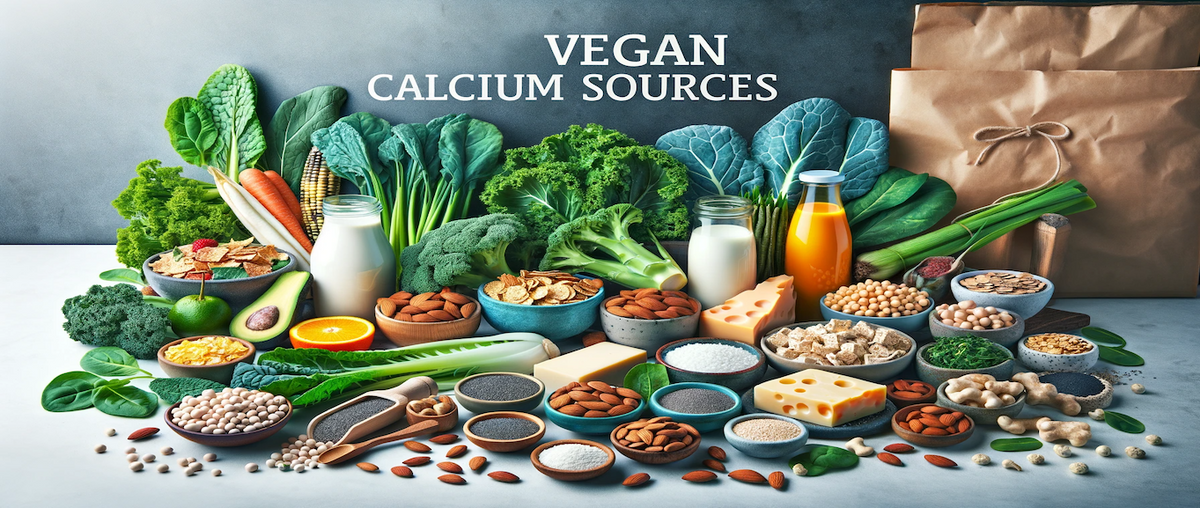The Impact of Veganism on Mental Health
Veganism, once a fringe dietary choice, has surged in popularity over the past decade. This rise is fueled not just by concerns over animal welfare and environmental sustainability but also by the growing body of research suggesting significant health benefits associated with plant-based diets. However, the impact of veganism extends beyond physical health, touching on aspects of mental well-being that are both positive and complex.
The Nutritional Perspective
The Nutrient-Brain Connection
The brain is an organ that requires a variety of nutrients to function optimally. Omega-3 fatty acids, Vitamin B12, iron, and zinc are among the nutrients critical for mental health, and deficiencies in these can lead to mood disorders, including depression and anxiety. Vegan diets, while rich in certain nutrients, can sometimes lack these essential components if not properly planned.
For instance, Vegan Cheese and plant based cheese products can provide alternatives to dairy, but vegans must seek out fortified versions or supplements to ensure they receive enough B12. Similarly, Cashew Butter and vegan mayo offer healthy fats, but one might need to supplement with algae-based omega-3s to match the benefits of fish oils, known for their positive effects on brain health.
Overcoming Nutritional Deficiencies
To mitigate these concerns, vegans can focus on whole, nutrient-dense plant based foods and Vegan products that are enriched or fortified. Cholesterol-free foods and fat-free butter alternatives, for example, can be part of a diet that supports heart health without sacrificing mental well-being. Incorporating a variety of plant-based products, such as vegan butter , Vegan Shop offerings, and vegan items like vegan mayo, ensures a broad intake of essential nutrients. Supplements, particularly for Vitamin B12, Vitamin D, and Omega-3, can help bridge any nutritional gaps.

Psychological and Social Considerations
Perceived Benefits of Veganism
Adopting a vegan lifestyle can have profound psychological benefits. Many individuals report a sense of increased emotional well-being and life satisfaction, stemming from the knowledge that their dietary choices are in harmony with their ethical beliefs and environmental concerns. This alignment of values and actions can foster a positive mental state, contributing to an individual's overall mental health.
Challenges and Stressors
However, the vegan journey is not without its challenges. Social isolation, dietary restrictions, and the constant need to scrutinize labels for vegan food products can be sources of stress and anxiety. Despite these potential hurdles, the vegan community is growing, offering support and shared experiences that can help alleviate these pressures.
Good Impact of Veganism on Your Mental Health
Focusing on the positive impacts, a well-planned vegan diet rich in plant-based products can be beneficial for mental health. Foods high in antioxidants, fiber, and vitamins found in vegan items can improve brain function and mood. The dietary patterns of consuming plant based foods like vegan cheese, plant-based cheese, and other vegan products are associated with lower levels of depression, anxiety, and stress. This might be due to the high intake of fruits, vegetables, nuts, and seeds, which are known to contribute to better mental health outcomes.
Can a Vegan Diet Help Reduce Symptoms of Depression?
Depression is a complex mental health condition that affects millions worldwide, and diet plays a crucial role in its management and prevention. The connection between a vegan diet and depression is multifaceted, with research offering insights into how plant-based nutrition can influence mental health.
A vegan diet, rich in plant-based foods, provides a high intake of fruits, vegetables, legumes, and whole grains, which are packed with nutrients essential for brain health. These foods are sources of folate, magnesium, fiber, and phytonutrients, which have been linked to lower levels of depression. For instance, vegan food products that replace traditional dairy and meat with vegan cheese, vegan butter, and plant-based cheese can also contribute to a healthier gut microbiome, further influencing mood and mental well-being through the gut-brain axis.
However, it's important to note that simply being vegan doesn't automatically translate to improved mental health. The quality of the vegan diet matters immensely. Diets high in processed vegan foods and lacking in variety can lead to nutrient deficiencies that may worsen mental health. Thus, incorporating a wide range of vegan products, including Cashew Butter, vegan mayo, and other cholesterol-free foods, alongside whole plant-based foods, is essential for promoting mental health.
Vegan Diets Reduce Pain
Chronic pain, a debilitating condition affecting a significant portion of the population, has been shown to have a complex relationship with mental health. Research suggests that a vegan diet may offer benefits in managing chronic pain, which, in turn, can positively impact mental health. The anti-inflammatory properties of plant-based foods play a pivotal role in this aspect. Foods rich in antioxidants and phytonutrients, such as fat-free butter alternatives and plant-based products, can help reduce inflammation, a key factor in many chronic pain conditions.
Moreover, certain vegan items have been identified to possess specific benefits in pain reduction. For example, turmeric, often used in vegan food products, has been recognized for its anti-inflammatory and pain-relieving properties. Omega-3 fatty acids, crucial for both brain health and inflammation reduction, can be obtained from algae-based supplements, a vegan-friendly source. This highlights the importance of a well-rounded vegan diet that not only focuses on eliminating animal products but also emphasizes the inclusion of nutrient-dense, anti-inflammatory foods.
Incorporating vegan cheese, plant-based cheese, and vegan butter into one's diet can also be part of a strategy to reduce intake of saturated fats and cholesterol, which are linked to inflammation and pain. Choosing plant-based foods and vegan products conscientiously can contribute to a reduction in pain levels and an overall improvement in quality of life, which is deeply intertwined with mental health.
Mood Improvement through a Vegan Diet
A key aspect of mental health that is positively influenced by a vegan diet is mood. Studies have suggested that the high intake of fruits, vegetables, nuts, seeds, and whole grains, which are staples in a vegan diet, can lead to improvements in mood. The rich content of antioxidants and phytonutrients in these plant-based foods helps combat oxidative stress in the body, which has been linked to mood disorders.
Vegan food products, particularly those high in complex carbohydrates, can help regulate serotonin levels in the brain, often referred to as the feel-good neurotransmitter. By ensuring a steady supply of complex carbs through plant-based products like plant-based cheese and whole grain vegan items, vegans can maintain balanced serotonin levels, contributing to a stable and positive mood.
Stress Reduction and Veganism
Stress reduction is another significant benefit associated with a vegan diet. The emphasis on plant-based foods not only supports physical health but also aids in stress management. Foods rich in magnesium and vitamin C, such as leafy greens and fruits, are abundant in vegan diets and play a crucial role in the body's stress response system. Additionally, cholesterol-free foods and fat-free butter alternatives help improve cardiovascular health, which can be negatively affected by chronic stress.
The act of choosing a diet aligned with personal ethical beliefs, such as consuming vegan cheese instead of dairy cheese, can also reduce cognitive dissonance, a source of psychological stress. This alignment of values with lifestyle choices can contribute to a sense of inner peace and reduced stress levels.
Overall Mental Health Benefits of Veganism
The overall mental health benefits of adopting a vegan diet are profound. By eliminating animal products, individuals often report feeling more energetic and clearer in thought, which can be attributed to the lower saturated fat intake and higher amounts of fiber from a diet rich in plant-based foods and vegan products. This energy boost can contribute to increased physical activity, which is another key factor in improving mental health.
Moreover, the vegan community offers a sense of belonging and support, which is crucial for mental well-being. Engaging with like-minded individuals through vegan shops and online forums can provide social support, reducing feelings of isolation and promoting a positive mental state.
Conclusion
The relationship between veganism and mental health is multifaceted and overwhelmingly positive when the diet is well-planned and balanced. Incorporating a variety of plant-based foods, ensuring adequate nutrient intake, and aligning dietary choices with personal values can significantly impact mental health, from reducing symptoms of depression and anxiety to improving mood and reducing stress. As the world becomes more aware of the benefits of veganism, it is likely that more people will adopt this lifestyle for both its physical and mental health advantages.
Do you enjoy vegan food? We have a list of vegan restaurants in India to help you find delicious options in your area!










